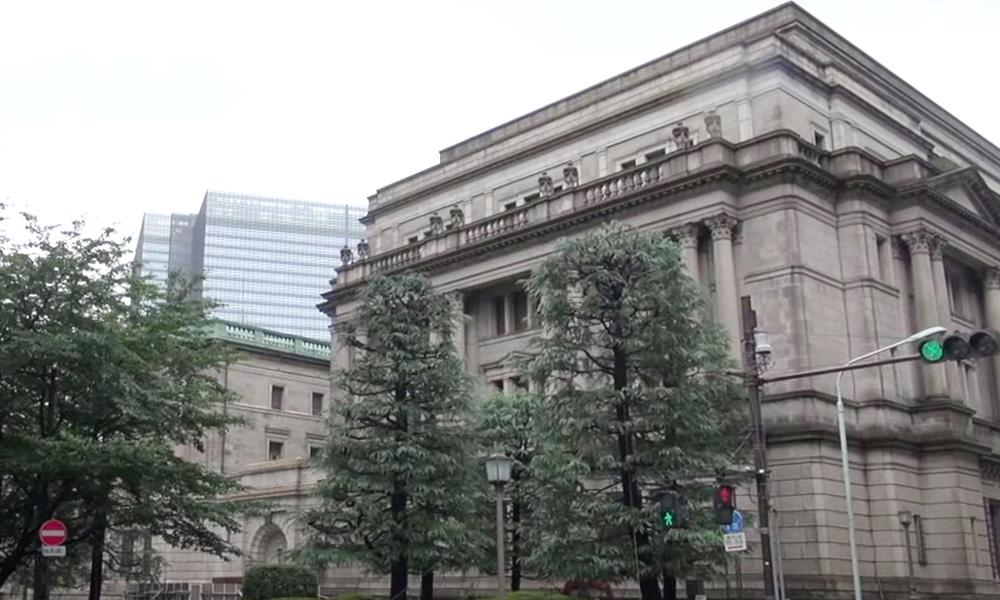Bank of Japan debate exposed! Is an October rate hike imminent? Former board member provides key information
2025-09-24 16:35:10

Markets are pricing in about a 50-50 chance of a rate hike at the Bank of Japan’s next policy meeting on Oct. 29-30, when the board will also release updated quarterly economic growth and inflation forecasts.
Bank of Japan Governor Kazuo Ueda stressed the need to carefully assess the expected impact of U.S. tariffs on Japan's economy and wage outlook when deciding when to restart interest rate hikes.
Possible options under risk orientation
Seiji Adachi pointed out that based on the risk-centered policy orientation, the central bank may postpone the interest rate hike until around March next year, when it will be clearer whether the tariff impact will affect next year's wage negotiations.
But he said the possibility of the Bank of Japan raising interest rates at its next meeting in October could not be ruled out as stronger-than-expected economic growth in the second quarter could push up the committee's growth forecasts and keep inflation around its 2% target.
"Another 25 basis point rate hike would have limited impact on economic growth as borrowing costs would still be below a level considered neutral for the economy," Adachi said.
If the Bank of Japan is more focused on downside risks to the economic outlook, given recent data showing signs of weakness in exports and corporate profits, it is likely that it will avoid raising interest rates in October. Seiji Adachi, a former member of the Bank of Japan's nine-member policy board, said, "But if the board raises its growth forecast and revises its current projection that inflation will briefly fall below 2%, the Bank of Japan will have little reason to remain on hold."
The Bank of Japan kept interest rates unchanged at 0.5% last week, but two members dissented and proposed raising rates to 0.75%, a move that pushed up government bond yields as markets expected a possible rate hike in the near future.
Current forecasts and latest economic performance
In its current report, released in July, the board forecast economic growth of 0.6% in the current fiscal year (which begins in April) and 0.7% in fiscal 2026. Core consumer inflation was expected to reach 2.7% in 2025 before slowing to 1.8% in 2026.
The Bank of Japan will review its economic outlook at its October 29-30 meeting, taking into account a range of factors, including the latest data showing Japan's economy grew at an annualized 2.2% in the second quarter, faster than initially expected, driven by strong consumption.
Adachi said the Bank of Japan's quarterly "tankan" business survey, due to be released on October 1, could also influence the bank's decision on whether to raise interest rates next month. Japan's current core inflation rate of around 1.7% could reach the Bank of Japan's 2% target if the tankan shows companies' five-year inflation expectations accelerating to 2.5% from 2.3% in the previous survey.
Policy Outlook
Governor Kazuo Ueda has indicated that the Bank of Japan will continue to gradually raise interest rates if it becomes more confident that underlying inflation will consistently reach its 2% target. At a press conference last week, he emphasized that potential inflation has not yet reached 2%.
Seiji Adachi analyzed this and said: "Since the risk of inflation overshooting is not high, the Bank of Japan does not need to rush to raise interest rates. To some extent, the central bank holds the initiative in the timing of rate hikes."
A survey conducted before the Bank of Japan meeting showed that most economists expected another 25 basis point rate hike before the end of the year. However, respondents were divided on the timing of the rate hike, with bets concentrated on October and January.
Analysis on the impact of the Bank of Japan's policy outlook on the yen
According to the remarks of former Bank of Japan board member Seiji Adachi and related information, the Bank of Japan's policy direction is at a critical crossroads, which will have a significant impact on the yen exchange rate.
Before the October meeting results are released, any positive economic data (especially inflation and wage data) or hawkish comments from officials could reinforce expectations of an October rate hike, pushing the yen up. Conversely, if the data is weak or officials release dovish signals, the yen may come under pressure and fall.
The market's speculation over interest rate hike expectations will increase volatility in the yen in the short term, while its medium- and long-term trends will depend entirely on whether the Bank of Japan can initiate and continue its monetary policy normalization process.
At 16:30 Beijing time, USD/JPY was trading at 148.16/17.
- Risk Warning and Disclaimer
- The market involves risk, and trading may not be suitable for all investors. This article is for reference only and does not constitute personal investment advice, nor does it take into account certain users’ specific investment objectives, financial situation, or other needs. Any investment decisions made based on this information are at your own risk.





















